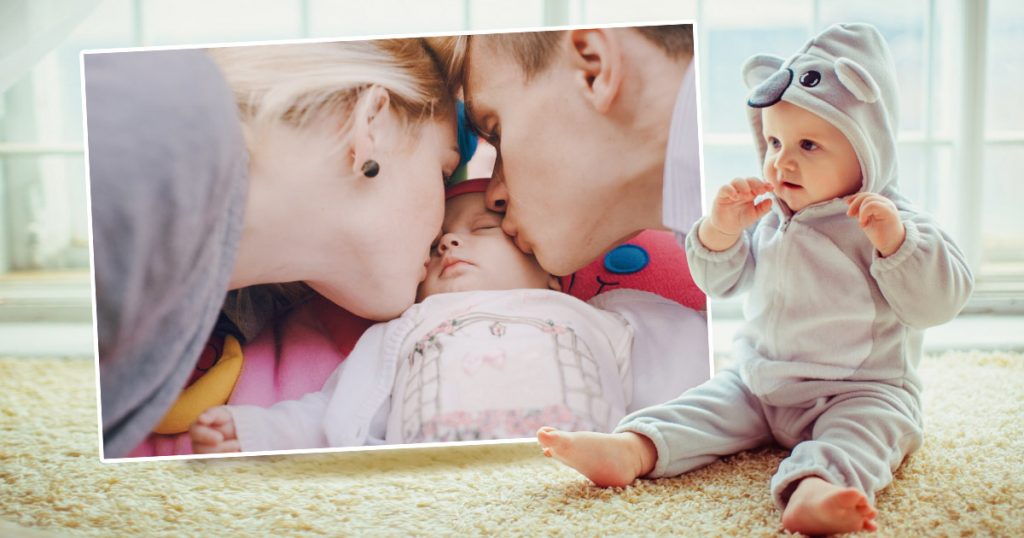As new parents, you might wonder when to kiss your newborn. Understanding when it is safe to kiss a baby is essential for protecting their health and shielding them from potential germs and infections. While the instinct to kiss your baby is natural, it’s important to consider the risks and follow the guidelines to ensure your baby stays healthy.
Find out the right time to kiss your baby, whether it’s safe for grandparents to kiss it, and why some parents follow the “no kissing baby rule.
Why is Kissing a Baby Risky?
Newborns are particularly vulnerable during the first few months of life. Their immune systems are still developing, making them more susceptible to infections and viruses. Babies can easily pick up germs from even the most innocent interactions, such as kissing.
The main concern is the transmission of viruses like the flu, cold sores (caused by the herpes simplex virus), and even respiratory infections. Kissing on the face or hands can transfer germs that might not seem dangerous to adults but can cause serious health issues for babies. The Centers for Disease Control and Prevention (CDC) emphasize that newborns should be protected from individuals who might be ill or carrying infections.
That’s why many parents use the “no kissing rule” to safeguard their babies. This rule aims to minimize the risk of babies being exposed to harmful germs or viruses, especially from people outside the immediate family.
When Can Parents Kiss Their Baby?
Moms can generally kiss their newborns safely, as long as certain precautions are taken to protect the baby’s health.
Good hygiene
Wash your hands thoroughly before holding or kissing your baby. This helps reduce the risk of transferring any germs or bacteria that could harm your baby’s health.
Avoid close contact if you’re sick
If you have cold sores, flu, or any contagious illness, it’s best to avoid kissing your baby until you’re fully recovered. The herpes simplex virus, for example, can be spread through saliva and can cause serious complications in newborns.
Monitor your baby’s health
If your baby shows signs of illness (such as fever, irritability, or poor feeding), you may want to avoid kisses until their health improves.
Safe Ways to Show Affection Without Kissing
If you’re concerned about the “no kissing baby” rule but still want to express your affection, there are other safe ways to do so:
- You can kiss the top of your baby’s head or the back of their hands and feet instead of their face, as these areas are less likely to transfer germs.
- Cuddling and hugging your baby is a safe way to express love and maintain physical closeness without kissing.
- Talking and singing to your baby helps build a strong bond without any risk of passing on germs.
- Wearing clean clothing can provide extra protection; ensure your clothes are freshly washed before holding or kissing your baby.
When Can You Kiss Your Baby Safely?
As your baby grows, their immune system becomes stronger. By the time they are 3 to 6 months old, they’ll have had some vaccinations, and their immune system will be more developed. This is typically when parents feel more comfortable kissing their baby. However, it’s still essential to avoid close contact if either you or the baby is sick.
Here’s a general guideline for when it becomes safer to kiss your baby:
3 to 6 months
By this age, your baby will be stronger and less susceptible to common infections. It’s safer to kiss your baby on the cheek or forehead at this stage, but always monitor your baby’s health and ensure they are healthy.
After vaccinations
As your baby gets vaccinated and their immune system becomes more robust, they will be better protected against certain diseases, reducing the risk of infections from viruses or bacteria.
When your baby interacts with others
As your baby becomes more mobile and starts interacting with others, they will naturally come into contact with more germs. At this stage, it will be harder to control exposure, so it’s important to balance safety with affection.
Safety First, Love Always
Kissing your baby is about more than affection—it’s about protecting them too. In their early months, being cautious shows your love and care by keeping them safe. As your baby grows stronger, you’ll have more chances to enjoy those special moments without worry. Choosing safety now creates a stronger bond for the future.
